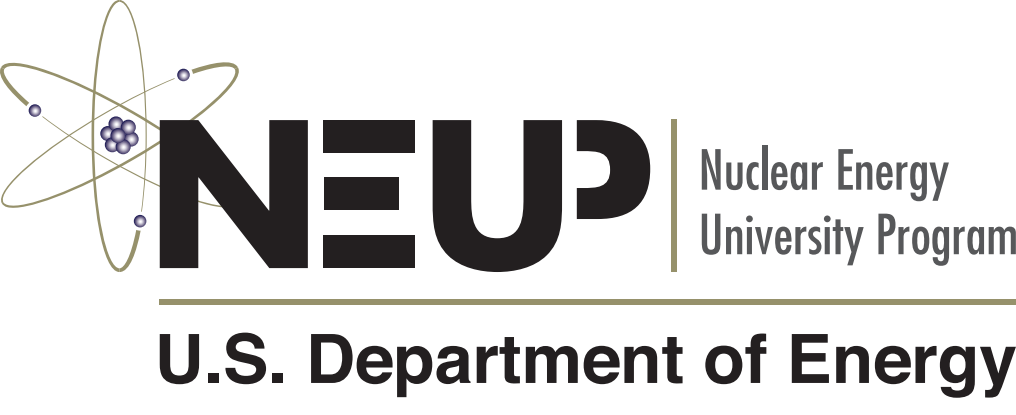Title
| Distinguished Faculty
| Institution
| Estimated Funding
| Project Description
|
|
| North
Carolina State University
|
|
$625,000
| The main
objective of the proposed work is to demonstrate the way dynamic PRA insights
can be used to rethink how the completeness problem of the PRA models can be
addressed during the design,
licensing, and maintenance activities of current LWRs and advanced reactors
by including dynamics observed during actual operating events.
|
|
|
|
|
$624,989
| Proposed
project will explore the capability of the multi-feeder laser powder DED and
in-situ mechanical working-based hybrid DED technology developed at UND for
surface modification of accident tolerant fuel claddings used in light water
nuclear reactors. Post-fabrication detailed microstructural characterization
and property evaluation, in particular hardness, tensile behavior and wear
resistance characteristics of test samples, will be explored.
|
|
|
|
|
$625,000
| This
project aims to develop a foundational paradigm that provides innovative
optimization and control solutions to support DOE-NE synergistic advanced
reactor programs. The key aspect of this planned work is based on an
established framework enhanced with these novel contributions: (1) diverse
bio-inspired ensemble optimizer with surrogate modeling for reactor siting
& core-reload optimization, (2) hybrid model predictive reinforcement
learning controller for microreactors, and (3) modern integrated research and
teaching plan.
|
|
|
|
|
$625,000
| To
answer crucial questions on transient critical heat flux and post-CHF heat
transfer behavior, the project plans to conduct experiments using
high-resolution distributed temperature sensors in a directly heated fuel rod
simulator at prototypical LWR accident conditions and use machine learning
methods to improve the predictability capabilities of relevant computational
codes. Two educational developments are proposed to promote broader and more
inclusive nuclear engineering learning.
|
|
|
| Pennsylvania
State University
|
|
$625,000
| This
project aims to improve the resistance of ferritic-martensitic (FM) steels to
environmental degradation in advanced reactors via two technical objectives:
(i) design creep-tolerant FM steels with superior swelling resistance based
on systematic understanding of the evolution of nanosized precipitates under
extended irradiation and (ii) develop novel refractory high entropy alloy
coatings to suppress the corrosion of FM steels in molten fluoride salts.
|
|

